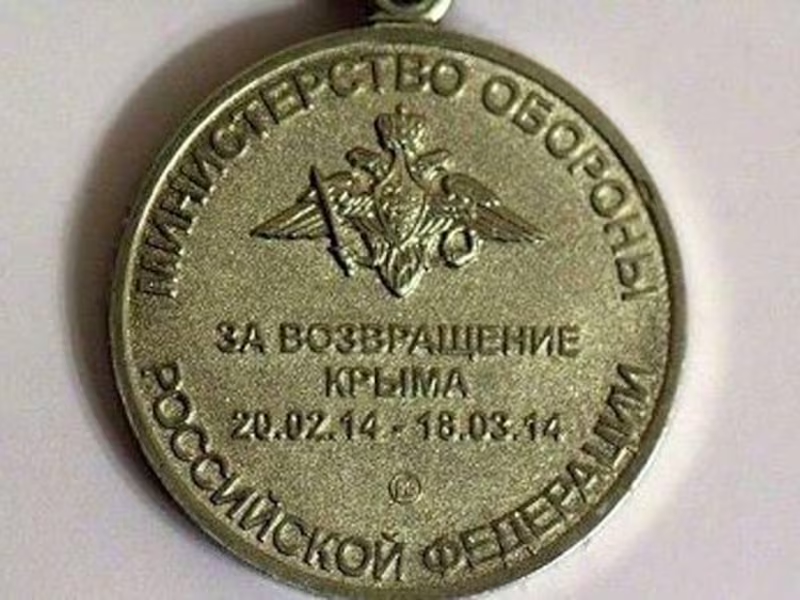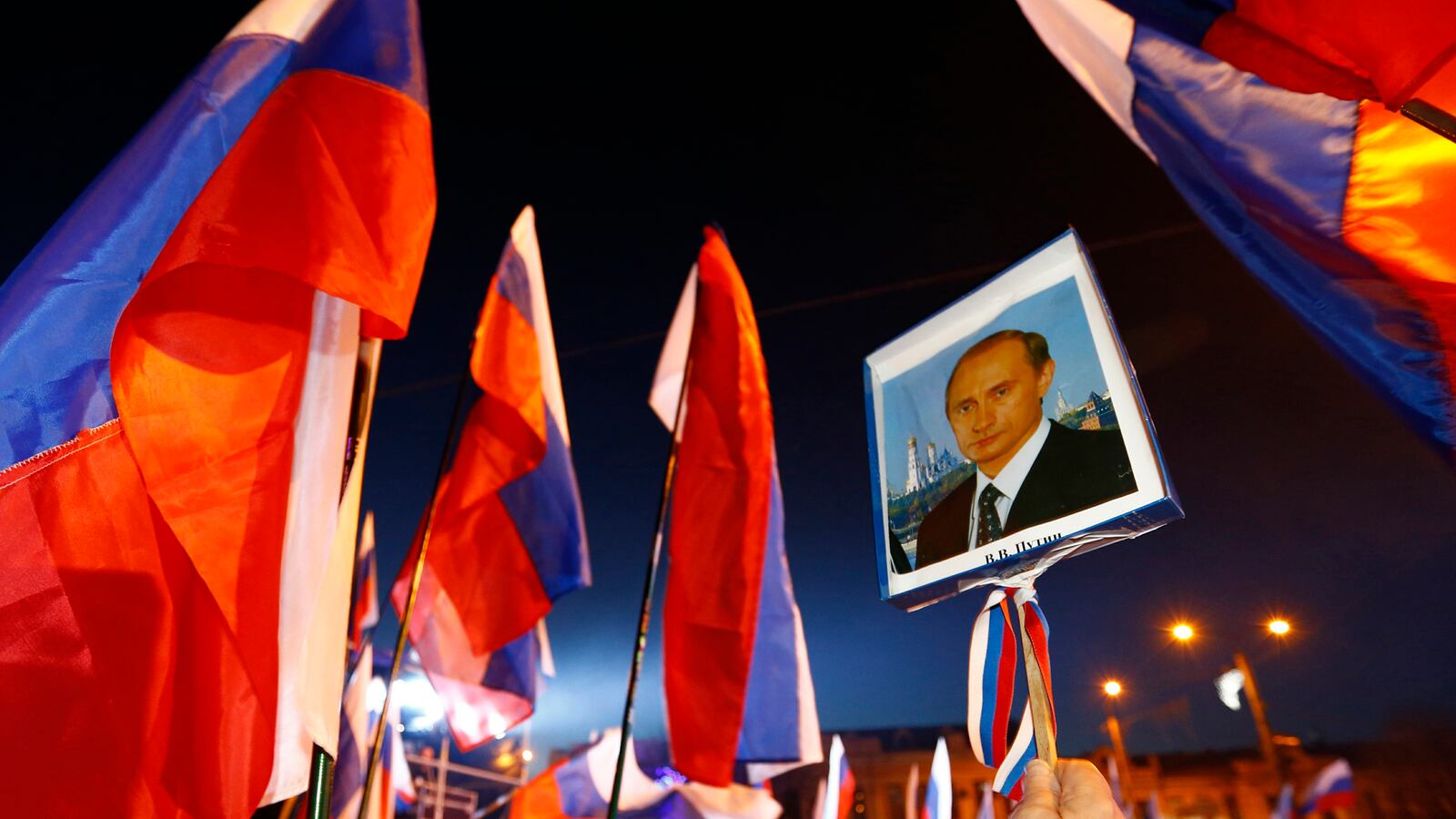Who would have thought that one of the more controversial details to emerge from the annexation of Crimea would come from a simple medal presentation for “heroes”?

Reports first emerged on the Facebook page of Volodimir Prosin, a historian and journalist from the Luhansk region of Ukraine, showing photographs and documents about a medal being awarded by the Russian government to former Ukrainians. On one side of the silver medallion is a raised image of the outline of the Crimean peninsula. The controversy, though, is on the flipside of the coin.
On that side, there’s an emblem of the Russian Federation’s ministry of defense. Below that, this inscription: “For the return of Crimea 20.02.14 - 03.18.14.”
Yet how could the dates of Crimea’s “liberation” have begun on February 20th?
An image of the medal was quickly removed from the Russian defense ministry’s website after the ceremony on March 25, but the damage was done. How could Crimea have been “liberated” in an operation beginning on February 20, the day on which a bloody assault against the Maidan protesters began in Kiev, killing nearly 100 people? Even more perplexing is that Viktor Yanukovych was still officially the president of Ukraine and Crimea on February 20. So how could this operation have begun on that day, while he was still president—or more importantly, why?
Most reports indicate that this was some kind of “oversight” by the Russian government. Putting the date of the beginning of the liberation as February 20 may not mean that Russia intended to annex Crimea by sending snipers to Kiev while Yanukovych was still president, but what it does indicate is that one of the bloodiest days in recent Ukrainian history is being celebrated, deliberately or not, on a medal marking the beginning of Crimea’s “liberation.”
The dates on the medal also contradict Putin’s statement that the annexation of Crimea was not even considered until secret polls were carried out in late February indicating the Crimean population’s desire to be annexed. Even more disturbing is the subtext that some of those same snipers who killed so many in Kiev and who later fled to Crimea may be receiving these same medals for their actions.
Whatever the reason this date was chosen as the beginning of Crimea’s liberation—not quite set in stone but in silver—the incident is damaging for the Kremlin, whose activities these last several months have raised a lot of eyebrows in the West and struck fear into the hearts of its neighbors. Perhaps what is most telling about the medals is the insight it offers into the minds of those surrounding President Vladimir Putin and how they view those bloody days from February 20-22. What is being celebrated and rewarded by the Kremlin are events that the international community has mourned. Perhaps former Viktor Yanukovych may be the one most surprised by the dates on this medal—and what it says of the final days of his belligerent rule.






